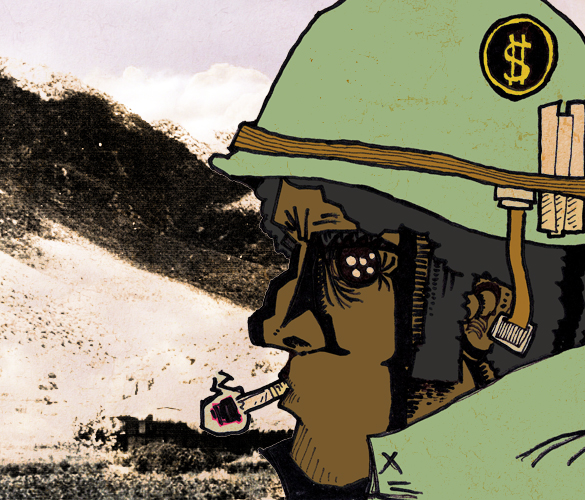Home
Toni Morison, 145 pp.
Alfred A. Knoph
Frank Money is not the first fictional war veteran to come home to an America still plagued with racism and prejudice. Leslie Marmon Silko’s Ceremony (1977), for example, also explores themes of the racial outsider coming home from fighting for a country that could care less about them. While Silko chooses a post-modern stylistic lens, Morrison goes for something a bit more Faulknerian, telling the story of the veteran through the lenses of different people in his life. A former lover, his sister, Money and Money’s own interior thoughts all get to narrate their own chapters.
The story that runs through those various perspectives is captivating in and of itself. Morrison has a flare for writing compelling plots dotted with history, sexuality, and a commentaries on racism that make the reader sting with fury at times, and, of course, Morrison gives Money enough flaws that he isn’t completely over-the-top heroic. His journey begins when he breaks out of a psych ward, and we see bits and pieces of why he was there throughout the novel. Most of it seems driven by an out of control temper, often lubricated with alcohol, but when Money’s chapters describe these “episodes” they point to a far graver issue, to the point where I questioned whether he ever should have left the mental ward.
Money’s motivations seem pure, however, as it is a letter from his sister Cee concerning her imminent death that jump-starts his long haul back to Lotus, Georgia, the hometown Money hoped he’d never have to return to, the place that drove him to war as escape.
At this point, Morrison’s tale begins to take us all over the place, following Money’s travel as he stops everywhere from churches to YMCAs to all-night diners as he crosses the country. We get some back-story on Lotus and Money’s origins and on his family, helping us really understand why Money fled his hometown. Money’s little sister Cee, has her own struggles with family, and shares a desire to break free and make her own life. Cee switches from job to job and eventually lands herself in the situation from which Money must to save her.
As noted above, Morrison touches on many of her usual themes here— racism, sexuality, and gender—without sounding repetitious or berating. While her trademark themes and styles make Home unmistakably Morrison, the compelling plotline keeps things fresh. At a mere 145 pages, it neither drags nor seems too underdeveloped. Morison’s main strength is her ability to create a compelling plot, regardless of recurring themes, to take the reader somewhere else—the core of good fiction.



